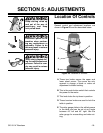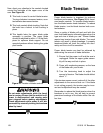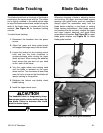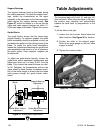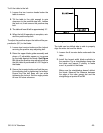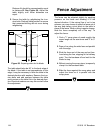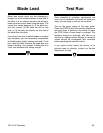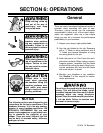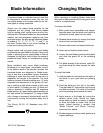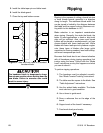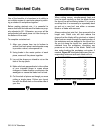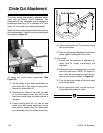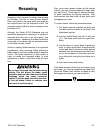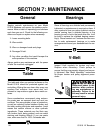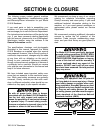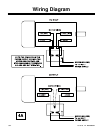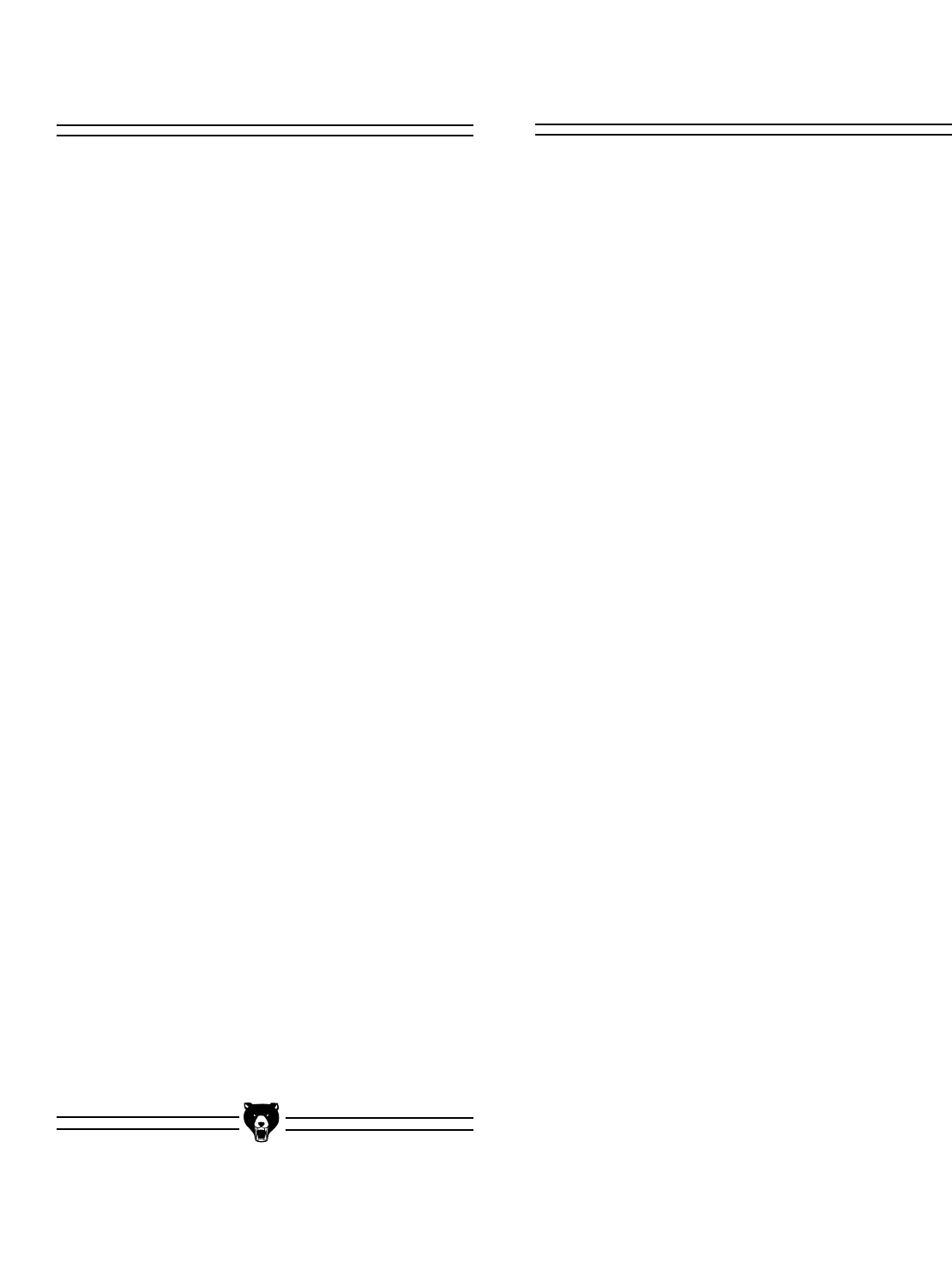
G1019 14'' Bandsaw -27-
When removing or installing blades, make sure
the power is disconnected and moving parts have
come to a complete stop.
To remove the blade:
1. Back guide block assemblies and support
bearings away from the blade and raise the
guide post up and away from the table.
2. Release blade tension by turning the blade
tension knob counterclockwise.
3. Remove table insert and tapered table pin.
4. Open top and bottom wheel covers.
5. Loosen the two blade guard mounting bolts
and slide the guard off of the mounting
studs.
6. Pull blade straight off the wheels, rotate 90°
and feed along the table through the table
slot.
To install the blade:
1. Hold the blade in both hands so the teeth of
the blade in your right hand are pointing
down.
2. Feed the blade into the slot in the table.
Turn the blade 90° and position over the top
and bottom wheels. The teeth of the blade
must be pointing down toward the table.
3. Apply tension to the blade by turning the
tension control knob. Rotate the upper
wheel slowly by hand as tension is applied
to allow the blade to center itself on the
wheel. Adjust tracking if needed. See
“Blade Tension” and “Blade Tracking”
instructions for details.
4. Readjust upper and lower blade guides and
support bearings.
Changing Blades
A bandsaw blade is a delicate piece of steel that
is subjected to tremendous strain. Be sure you
use quality blades of the proper width for the var-
ious types of cutting operations.
Always use the widest blade possible for the
workpiece you are cutting. Use narrow blades
only for sawing small, abrupt curves and for fine,
delicate work. Bandsaw blades can be purchased
welded, set and sharpened ready-for-use from
most saw shops. We also supply bandsaw blades
in widths of
1
⁄16",
1
⁄8",
3
⁄16",
1
⁄4",
3
⁄8",
1
⁄2", and
3
⁄4", for
this saw. Please refer to our current catalog for
prices and ordering information.
Always select and use good quality saw blades
and choose the right blade for the job. Using a dull
blade or selecting a poor quality blade or one not
designed for the job at hand is often the cause of
premature blade failure or unsatisfactory cutting
results.
Many conditions may cause blade breakage.
Breakage is, in some cases, unavoidable, since it
is the natural result of the peculiar stresses that
bandsaw blades are subjected to. Blade break-
age is also due to avoidable causes. Avoidable
breakage is most often the result of poor care or
judgement on the part of the operator. The most
common causes of blade breakage are: (1) faulty
alignment and adjustment of the guides; (2) forc-
ing or twisting a wide blade around a tight curve
or short radius; (3) feeding too fast; (4) tooth dull-
ness or absence of sufficient set; (5) excessive
blade tension; (6) upper blade guide assembly set
too high above the workpiece; (7) using a blade
with a lumpy or improperly finished weld; and (8),
continuously running the bandsaw when not in
use.
The Grizzly G1019 14" Bandsaw uses 93
1
/
2"
blades.
Blade Information



